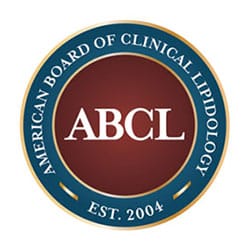When excess fluid gets trapped in your body’s soft tissues, it causes swelling, a condition known as edema. If you suffer from edema, it could be the sign of a more serious health condition.
Our team of edema specialists at St. Louis Heart and Vascular offer diagnosis and treatment, as well as diagnosis of underlying health conditions that may be causing your body to swell.
If you suffer from edema, call the office nearest you to schedule a consultation and learn about your treatment options.
Edema Diagnosis & Treatment Q&A
What causes edema?
The swelling of the soft tissue in your body, or edema, may have many different causes. In some cases, pregnancy causes a mild form of edema since women carry more fluid in their bodies before delivering a baby. Certain medications like steroids, calcium channel blockers, or anti-inflammatory medicines may also cause edema. Other causes include:
- Liver disease like cirrhosis
- Kidney disease and acute kidney failure
- Venous insufficiency in your legs and ankles
- Varicose veins
- Congestive heart failure that causes fluid to leak from your blood vessels to the surrounding tissue
- A diet high in salty foods
Edema may also appear in the lower half of your body as lipedema.
What are lipedema and lymphedema?
Lipedema is a condition that most often affects women and can be extremely painful. The symptoms of lipedema include a larger lower body in which fat accumulates in an unnatural way. Your legs and buttocks may become heavier over time and appear out of proportion with the upper half of your body.
Lipedema is sometimes confused with lymphedema, a condition in which one of your arms or legs swells up as a result of the removal or damage of your lymph nodes.
How is edema diagnosed?
To determine which condition you have so you can get the most effective treatment, our team at St. Louis Heart and Vascular performs diagnostic testing to detect edema. The tests may include:
- Bloodwork
- Echocardiograms
- Ultrasound of your affected limbs
Once they determine the underlying cause of your edema, lipedema, or lymphedema, your doctor discusses your treatment options. This comprehensive approach to edema symptoms ensures that you receive the highest level of care for your specific problems.
How is edema treated?
Mild edema or edema related to pregnancy often goes away on its own. If you have a more severe type of edema, your doctor may prescribe medications like diuretics to help flush the excess fluid from your body. Other treatments depend on the underlying causes of your edema symptoms.
Because edema symptoms may indicate a more serious health issue, like heart or kidney failure, it’s important to seek medical treatment as soon as possible. Call the St. Louis Heart and Vascular location closest to you to schedule an appointment.
Edema Diagnosis & Treatment Available at These Locations
We offer Edema Diagnosis & Treatment at the following St. Louis Heart and Vascular locations. Contact us to schedule your appointment today.
Bridgeton Office
- (314) 741-0911
- 3550 McKelvey Rd.
Bridgeton, MO 63044 - Location Info
Des Peres Hospital Office
- (314) 741-0911
- 2325 Dougherty Ferry Road, Suite 203
St. Louis, MO 63122 - Location Info
Granite City Office
- (314) 741-0911
- 2120 Madison Ave., Suite 101
Granite City, IL 62040 - Location Info
SLHV Sleep Lab
- (314) 741-0911
- 3550 McKelvey Rd.
Bridgeton, MO 63044 - Location Info
St. Charles Office
- (314) 741-0911
- 1551 Wall Street, Suite 410
St. Charles, MO 63303 - Location Info












